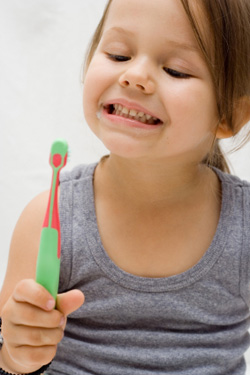

-
The service provided by Mr Pritchard was excellent. The standard of care given by him was second to none.
Nicola B.
-
My dental treatment is excellent, thorough and of a very high standard. Mr Pattison and his staff are friendly and caring.
Barbara P.
-
I received excellent treatment. I would recommend Mr Pritchard to anyone. He is extremely kind and considerate.
Muriel P.
-
Mr Pattison was very informative, explaining all procedures. There was no pain - even during any injections. I am delighted with the results.
Lisa H.
-
Marvellous service, caring staff, a dentist who is so kind. It is a pleasure to attend my appointments.
Jean H.
-
I am extremely pleased with the service I have received. The overall outcome of the work I have had done is excellent.
Mrs Susan C.
-
I would recommend this dental centre to anybody. When treatment has been necessary it has been done to a very high standard.
Claire R.
-
Throughout the time I have spent with Ribble Dental I have been incredibly impressed by the service and standards of the practice.
Matthew W.
-
Very professional and caring environment. Recently had two new crowns fitted and the treatment and care is excellent.
Janice M.
-
Very happy with treatment received. Staff are very nice and extremely helpful.
Mary A.
-
My dental treatment is excellent, thorough and of a very high standard. Mr Pattison and his staff are friendly and caring. Information is always available and given with patience and understanding.
Barbara P.
Children's Teeth
Milk teeth
 Children usually have 20 milk teeth. They start to push through the gums (erupt) at about six months. Most children have all 20 teeth by the age of two or three. The last milk tooth will fall out at around the age of 12.
Children usually have 20 milk teeth. They start to push through the gums (erupt) at about six months. Most children have all 20 teeth by the age of two or three. The last milk tooth will fall out at around the age of 12.
Your child's milk teeth are important for his/her eating, speech, smile and confidence. They are also important for the development of his/her permanent teeth, so it's very important to look after them.
Permanent teeth
Permanent teeth usually start to erupt at the age of six. Adults have up to 32 permanent teeth.
Most of these will erupt by the age of 13. However, wisdom teeth (those at the very back of the mouth) often don't erupt until the early- to mid-twenties, if at all.
Tooth decay
Our mouths are full of bacteria that build up on the teeth in a sticky layer called plaque. Bacteria digest some of the sugar in our food and drinks, making acids that can weaken the tooth enamel (the hard outer layer of teeth).
If acid remains on the tooth surface for a long time, it can cause those areas of the tooth to decay. This can happen if children often have sugary foods or drinks, or if they don't clean their teeth properly.
If your child has tooth decay that isn't treated by a dentist, it will eventually reach the centre of the tooth and can cause an infection or toothache.
Dental erosion
Dental erosion is the gradual wearing away of the enamel on the whole surface of the tooth. It's caused by acid attacking the surfaces of the teeth.
This is an increasingly common problem in young people's teeth.
These acids usually come from drinks such as fruit juices, fizzy drinks and squashes - even the sugar-free varieties.
Dental erosion can cause sensitivity and pain.
How can I protect my child's teeth?
To reduce your child's risk of tooth decay and dental erosion:
-
You should start cleaning your child's teeth as soon as they come through the gums. There are special toothbrushes and toothpastes for babies.
-
If your child is less than two years old, only use a smear of toothpaste. After that, use an amount about the size of a small pea.
-
Take your child to the dentist regularly
-
Don't give him/her too many sugary or acidic foods and drinks
-
Encourage your child to brush their teeth twice a day morning and night with fluoride toothpaste.
-
Supervise your child when they are brushing their teeth until they are at least 7yrs old.
-
Encourage your child to spit out toothpaste and not rinse with water, as this reduces the effect of the fluoride
Orthodontic treatments
Orthodontic treatments can be done for any of the following reasons:
-
Crowding - teeth are too close together
-
Spacing - gaps between teeth
-
Overbite - teeth overlap too much vertically
-
Over jet - front teeth stick out
-
Under bite - lower teeth stick out/lower jaw too big
-
Cross bite - upper and lower teeth bite on the wrong side of each other
-
Open bite - your teeth do not meet when you bite
-
Misplaced midline - centre lines of upper and lower teeth don't align
Please discuss this option with your dentist as we will be happy to refer your child to an orthodontic clinic which is convenient for you.




